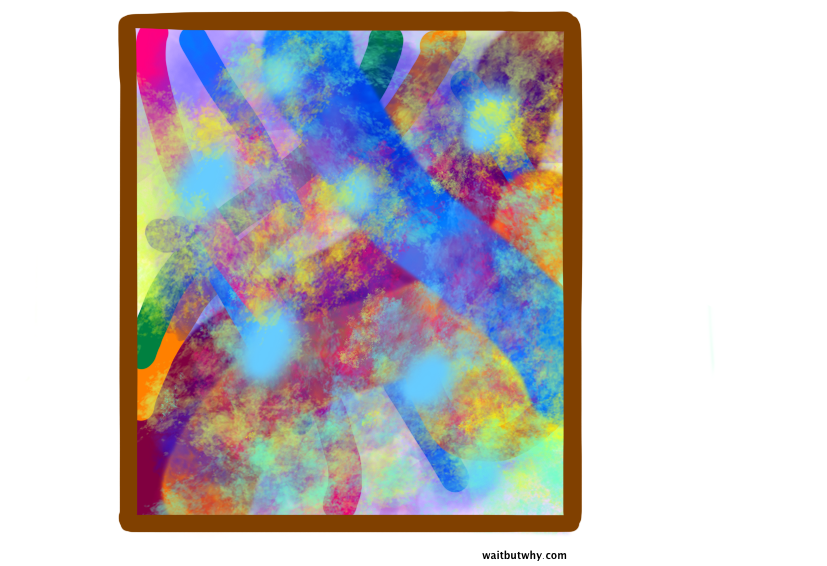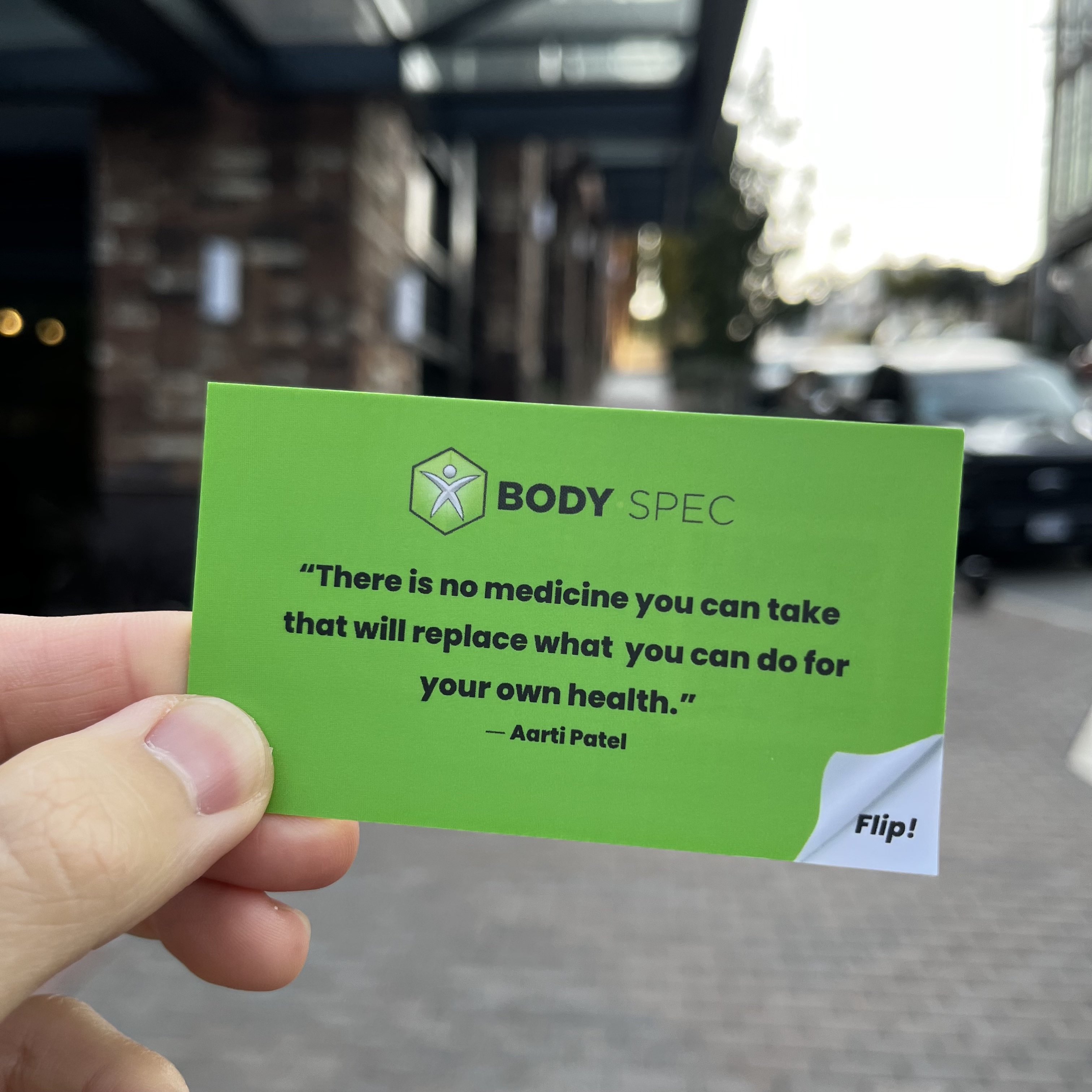Original link: https://weichen.blog/letters/64/
Hello friend!
This is the 64th issue of “Life Adventures”, sharing seven small things with you each week to design a healthier, richer, wiser and more interesting life together.
one
A confession, my mental state during this period is not very good. I’ve been expecting something very important that will make a big difference in my life, but I don’t have much control over when it comes.
I know this is a problem. As I wrote in ” Happiness Don’t Wait: There’s No Need to Pain Before Change “, “If change doesn’t happen right away, we don’t need to suffer from the status quo. Accepting the present doesn’t mean we can’t make progress or change. We still have to do things, and we’ll think about what to do when we’re done.”
But you and I both know it’s not easy. The free time of the day can often be swept away by fantasies about the future, or complaining about having to do something.
But I recently read a question that reminded me: “Is this the person I want to be?”
We spend most of our time doing things and forget about being. Ask yourself, do I want to be someone who dreams about the future every day and doesn’t make good use of the time to do meaningful things, or do I want to be someone who can live every day despite uncertainty and even setbacks?
Imagine in hindsight that no matter when that event came, I wouldn’t regret something I couldn’t control, but I would regret not being the best version of myself.
In Living the Meaning of Life, Nazi concentration camp survivor Victor Frank wrote, “It doesn’t matter what we expect from life, it matters what life expects of us.” He added, “Life ultimately It’s about taking responsibility, finding the right answers to our own problems, and doing the tasks that life keeps setting each of us up for.”
I am more and more convinced that true success has nothing to do with absolute high or low, but whether you can still live your best self while carrying the shackles.
More: 12 Questions That Will Change Your Life by Ryan Holiday
two
We all like to fantasize about the future, imagine what the actual experience of doing something will be like in the future, but psychologists tell us this is more of an “imagination” than an “actual”.
Tim Urban has a very vivid saying in Life is a Picture, But You Live in a Pixel . Said that we are used to seeing our life as a colorful picture depicting a moving story. We think that the key to happiness lies in the richness of the composition of the picture.

But in fact, we do not live in the thick lines in the picture, we only live in a pixel in the picture – a “today”.
![]()
I suddenly remembered a passage: “For a long time, my real life seemed to be about to begin, but there were always some obstacles that stood in the way, some things had to be solved first, some tasks had to be completed, time seemed to take, and There’s a debt to pay off, and then life begins. I finally understand that these obstacles, are my life. It makes me realize that there is no path to happiness, happiness is the path itself. So cherish Every moment you have, remember that time waits for no one.”
three
When you learn more about how things work, you’ll find a lot of stuff that’s just ridiculous.
One way is to escape everything and be a hermit in the deep mountains. But Morgan Housel says there’s another way to think about “what’s the optimal value I can live with in order to be able to do something in this imperfect and confusing world?”
“If you have zero tolerance—if you’re allergic to disagreements, motives, emotional outbursts, inefficiencies, poor communication—you’re unlikely to be successful at anything that requires cooperating with others. And the other extreme—totally accept every crap and hassle—is just as bad. The world will eat you alive.”
“The problem that a lot of people don’t realize is that if you try to eliminate all the bad things, some things can become bigger problems. Theft is a good example. A supermarket can search every customer who leaves, but this No one is going to buy there. So the optimal amount of theft is not zero. You need to accept a certain amount as the inevitable cost of progress.”
Source: The Optimal Amount of Hassle
Four
I heard a passage on the podcast talking about guilt, which is thought-provoking (meaning I haven’t figured it out myself ?):
“Guilt is the opposite of prestige, and both are bad reasons to do things. A lot of times we do things either because that thing feels famous, or because of guilt or not. do something.
This is what Buddhism calls avoidance and aversion. Whether it’s doing things out of fear — guilt is fear, fear of letting others down, fear of letting yourself down — or doing things out of prestige, expecting approval from others, I think those are very bad reasons. But they can be extremely motivating, at least lurking in our minds. Attempting to dismantle these conditioned reflexes requires deep practice. “
Source: Maria Popova on Writing, Workflow, and Workarounds – The Tim Ferris Show
five
As mentioned in issue 22 about a year ago, I bought my mom a book on diet, Help! After reading the Science Diet to Reverse and Prevent Deadly Diseases , they started cooking with less salt, oil and meat, and more colorful vegetables, beans and fruits. A few days ago, they went for a physical examination and were pleasantly surprised to find that many indicators, including cholesterol, were normal. My dad’s weight is out of the overweight range, and they don’t have to take the medicine the doctor prescribes. Of course I’m happy too.
I initially did this to expose them to better information. Elders are often very interested in the topic of health preservation, but most of their contacts from platforms such as WeChat are pseudoscience. Instead of telling them not to believe those (and you know it doesn’t work), give them better alternatives.
six
Just about any nutrition book written by a trusted scientist will tell you that many drugs are only a temporary solution. They treat symptoms, not the disease itself.
Professor Robert H. Lustig of the University of California, San Francisco writes in Metabolical:
“Oh yes, drugs can treat high blood pressure, high blood sugar, high blood lipids, but these are not the real cause of the disease. Modern medicine can properly treat certain diseases, such as infectious diseases (such as polio), genetic diseases (such as childhood leukemia) ) and some surgeries (such as gallbladder or unfinished surgery). But for chronic non-communicable diseases—including diabetes, heart disease, stroke, fatty liver, cancer, and dementia, which kill many people, Not only is it debilitating at a young age (think amputations, dialysis, blindness), but it eats up 75% of medical bills—modern medicine has these diseases all wrong.”
It’s worth reminding yourself: “No medicine can replace what you do for your health.”

(I did a DEXA Scan a few days ago to measure my body composition and got a small card. I will talk about this experience later.)
seven
When it comes to the quality of information intake, it seems that it is easier for us to “brush” content now: we know a lot, but we don’t go deep. I’ve become more and more aware that this is dangerous.
For example, I was reading ” The China Study ” recently, and I also sent my mother a Chinese translation called “Life- saving Diet “. It mentioned “aflatoxin”, but I didn’t check what it was in Chinese, only I knew it was a carcinogen, and only when I communicated with my mother did I know that it was “aflatoxin”. When I heard it, I suddenly realized, “Oh, I know this!”
But after thinking about it, it doesn’t feel right. I’m just familiar and don’t know . Familiarity makes us think we understand and are confident, but this confidence is based on misunderstanding.
So instead of knowing little about it, it’s better to not hear it at all and save your time and energy for more valuable information.
But this may not be the problem of modern people. The 18th century English poet Alexander Pope wrote a poem (poorly translated, welcome corrections):
Pierian Spring
A little learning is a dangerous thing,
drink deep or taste not the Pierian Spring.
There shallow waters intoxicate the brain
and drinking largely sobers us again.
Well, I hope to inspire you!
If you like this content, please help to share it with your friends, this is a great encouragement to me.
See you next week,
Wei Chen
ps When I wrote this issue, I was listening to the Goldberg Variations played by Goodell, which is recommended.
This article is reprinted from: https://weichen.blog/letters/64/
This site is for inclusion only, and the copyright belongs to the original author.